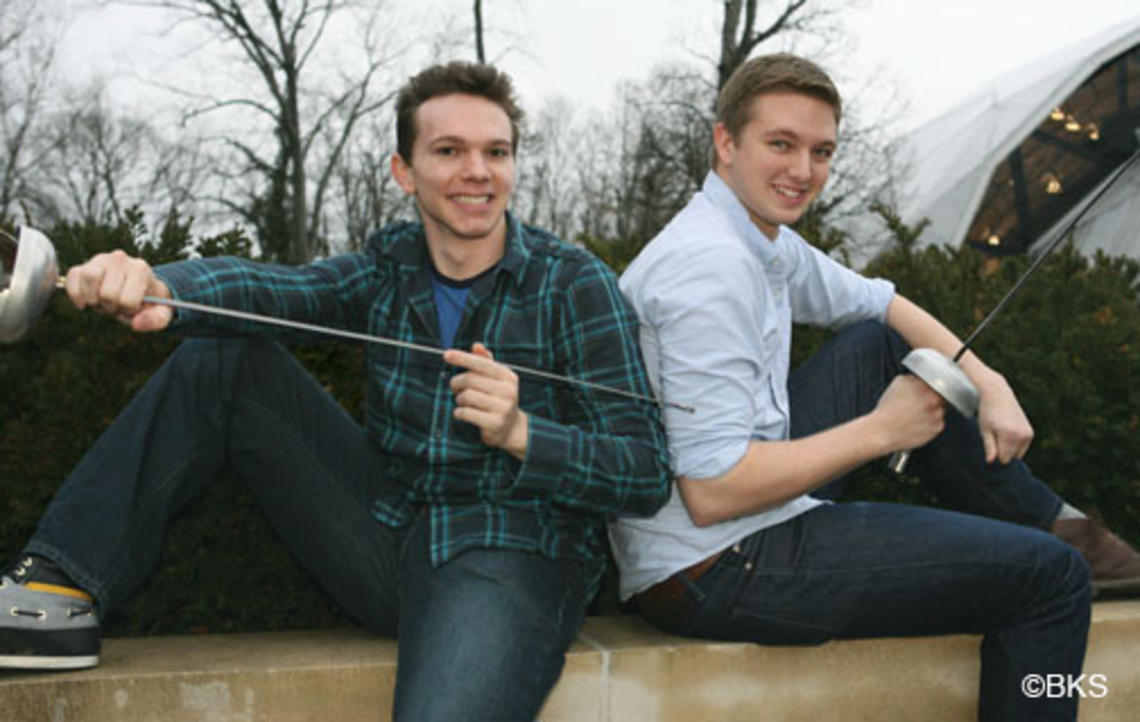
Epeeist Jonathan Yergler ’13 has placed in the top 10 at the NCAA fencing tournament in each of the last three seasons — and won the title last year — but he has boxed up his trophies and sent them home to focus his attention on this season, when Princeton’s team is hoping to outdo its 2012 second-place national finish.
Integral to his training is Edward Kelley ’13, his chief practice partner on the team and a rival since they were 10 years old. Kelley, also an epeeist, finished eighth at last year’s NCAAs. The two — dubbed “the twins” by their teammates — are friendly competitors who push each other to improve.
Head fencing coach Zoltan Dudas says Kelley and Yergler are perfectly matched: “No matter how many times they fence against each other, it always goes down to the very last touch.”
Yergler won nine of 10 bouts at Vassar Dec. 1 as his team went 4–1, losing to Penn State but handling the other teams with ease. The Tigers face a major test Feb. 9 and 10 at the Ivy League Championships, where they must defeat a tough Harvard squad as well as greatly improved teams from Columbia and Penn to defend their title.
Kelley and Yergler lead a team that is significantly smaller than last year’s, with five fewer fencers. Among the standouts are Philip Dershwitz ’14, who tied for third at the NCAAs last year, and Robert Stone ’14, who placed 22nd.
Though Kelley and Yergler grew up far from each other — Kelley in Texas and Yergler in Florida — they often faced each other at tournaments. Now they help each other by discussing strategy and offering advice about what the other should work on.
“You keep pushing each other to higher levels,” Yergler said. “Whenever Ed was doing well at competitions, I always wanted to do better than he did.”
Yergler has competed in several national competitions, finishing second and third in two Division I North American Cup tournaments. That should qualify him for World Cup competition, a steppingstone to the Olympic Games in Rio in 2016. But first he must defend his title at the NCAA Championships March 21–24 in San Antonio, Texas.
His coach says Yergler’s speed and playing style make him formidable. “He is a fast fencer, very dynamic and balanced on his feet,” Dudas said. “I think he is definitely capable of being in the top three or four in the country.”










0 Responses